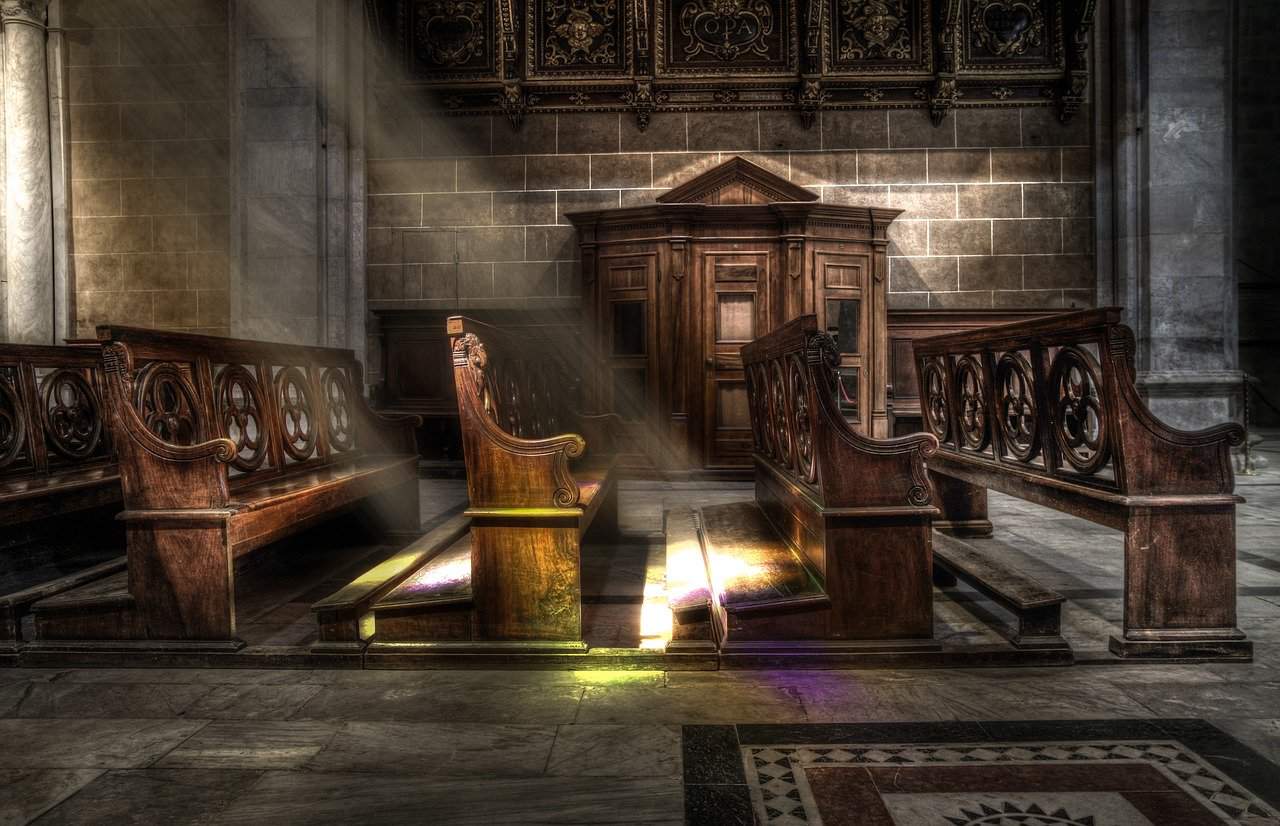Having obtained your Concealed Weapons Permit (CWP), you start to notice all the places where concealed carry is not an option. You wonder about the safety of a gun-free zone. A person intent on harm is going to favor gun-free zones such as schools, churches, and libraries. How can you stay safe in church?
You can employ a systematic approach to church safety including security cameras, timed door locks, closed circuit communication between team members, foot patrol of the grounds, guidelines on what to look for, and a designated stash of emergency supplies.
Don’t just prepare for violent intruders and parking lot theft. Be ready for slips and falls, wandering children, confused adults, bathroom accidents, weather events, and medical problems.
The Safety Team
In our church, we have made the decision to employ a volunteer safety team. A standing committee accepts applications based on concealed carry credentials, background check, and an interview. Those accepted for the team are assigned roles that rotate each week to keep everyone versed in the system.
The laws vary by state and municipality, so check the gun laws in your area. In South Carolina, churches have the right to authorize specified Concealed Weapons Permit (CWP) holders to carry concealed in church with the express permission of the governing body of the church.
This opens the way for a team of members who can make a plan to protect the church from violent intruders as well as more routine problems.
Security Cameras
Security cameras monitor entryways and other areas of interest, with a team member monitoring the cameras during services.
This allows the camera monitor to be in a safe, secluded place during an emergency. In the case of a shooter in the sanctuary, the camera monitor will see the problem and call 911 right away.
The camera monitor can also see what is going on in the parking lot, whether that is suspicious activity, a fall, or a car with its lights left on. The camera monitor can alert ushers that someone is locked out or wandering the halls in a confused manner.
Security cameras do not have sound, but our church also transmits the services live over Facebook, so the camera monitor also has the option of hearing what is going on in the service.
Live transmissions operate on a slight delay, however, so there will be a short lapse between seeing it on the camera and seeing it on the live feed.
Timed Door Locks
Our church employs magnetic locks that can be timed for limiting access. On weekdays all doors are locked and visitors must be buzzed in to see the office staff.
The daycare’s separate entry is locked, with parents having a special key that opens only that door and only during daycare hours. Parents are instructed not to share their keys with others.
A daycare staff member is stationed at the entry to monitor activity.
An additional locked door separates the entry from the area where the children spend the day.
On Sundays and Wednesdays the locks are timed to open as church members arrive for service and lock again during the service, with ushers stationed at the entry to the sanctuary to welcome latecomers.
Specific doors are open to allow normal traffic patterns to flow freely while areas not in use are unavailable.
Church staff, safety team members, and volunteers have access to the doors that are necessary for their specified roles. A specified staff member has the ability to program access as roles change.
The locks can be timed for special events such as weddings and funerals as well.
Closed Circuit Communication
The camera monitor and the members of the safety team have radios with earbuds that allow them to communicate with each other out of the hearing of the congregation. This allows them to address problems quickly and silently without disturbing the service.
We have also used this system to deal with issues that occur in the sound system, lighting, and air conditioning. The congregation appreciates having the temperature adjusted without disrupting the service.
Foot Patrol
Other members patrol the church, inside and out, focusing on high traffic areas. They also visit areas not in use. Radios allow the team members to communicate anything unusual before a crisis occurs, facilitating a quick response.
Team members are trained to determine whether a given crisis requires emergency help or just a little attention.
Guidelines on What to Look For
Safety team members stay alert for unusual behavior, dress that does not fit the season (such as a hoodie on a hot day), and signs of agitation or distress. They can then alert ushers to help a member or visitor who appears to be in need.
Armed intruders are not the only concern of a church safety team. A member who slips on a slick floor may need help getting up, or someone having a medical event might need an ambulance.
A child or disoriented adult who wanders away from the family should be quickly noted by alert team members.
Emergency Supplies
Our church keeps a first aid kit, cleaning supplies, and extra clothing on hand to deal with a variety of likely emergencies.
Safety Team members have access to supply closets and tools for dealing with minor building problems, such as turning off the water to a leaking faucet.
For the most part, the church membership at large is unaware of small events that occur in their midst, thus protecting the dignity and privacy of the distressed member.
Team members can also help by identifying cars with the lights left on or someone roaming the parking lot looking for valuables in unlocked cars.
Weather Events
Severe weather can be monitored by safety team members, leaving those in the service free to worship without monitoring their phones.
The extra eyes and ears in the hallway during the service may also be the first to notice a drip from a leaky roof or a door that doesn’t close properly.
Planning
The church structure itself can contribute to the safety effort. New buildings can be designed with an eye toward monitored entrances. Timed door locks can be synchronized to lock and unlock according to scheduled service times.
Staff members can have special keys that open all doors, while people with specific roles may have keys that only open the area required for that specific need; the team that prepares meals for special events may only need access to the kitchen and adjoining areas used for dining.
At least one staff member stays in contact with the safety team and sits in on meetings to inform the staff of church plans and to learn about safety concerns.
Children’s Safety
The children’s area of the church is of special concern. At our church, we check in each child with a colored wrist band and provide the parent with a matching numbered band so that claiming the child is a matter of matching the bands.
A volunteer staffs the desk at the entry to the children’s area, checking in the children and providing help to those who need direction. A sign-in sheet with each child’s name and parent’s phone number makes it easy to summon the parent if the child has a need during the service.
Your church may choose to study what other churches have done and build its own safety team, or you may wish to consult an organization that specializes in church safety such as Sheepdog Church Security.
Your local sheriff is a good resource for information on church security. Find out what your local church can do to stay safe. The life you save may be your own.


